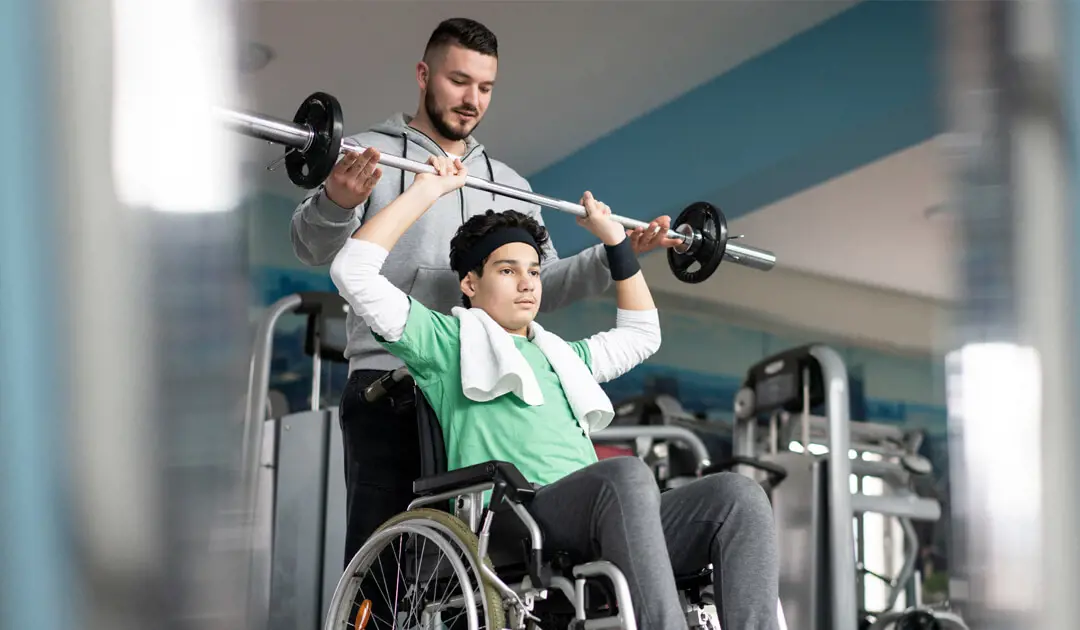Brain Injury Rehabilitation: Rebuilding My Life

I help people who are undergoing brain injury rehabilitation rebuild their futures. But when I was diagnosed with epilepsy, I needed help rebuilding my own.
I work for Dale Brain Injury Services in London, Ontario. I’m a Manager of Assisted Living Services and have been there for over 15 years.
At Dale, our neurobehavioural, community-based model of brain injury rehabilitation enables us to help people rebuild their futures. The goal of our services is to help clients maximize their potential for independence, reintegration into their community, vocational and avocational success, and positive relationships.
I’ve been a CPI Certified Instructor for over five years. At our agency, Nonviolent Crisis Intervention® training provides a range of skills for our staff to use in diverse situations. We aim to always employ the least intrusive protocols with our clients. CPI gives us practical skills to adapt to our clients’ various needs. It emphasizes the importance of maintaining therapeutic relationships with our clients, who can at times display disruptive and dangerous behaviours, and it helps us find ways to help them improve their behaviour.
When everything changed for me
I walked into work 10 years ago and while talking with some coworkers, I uttered something under my breath, fell to the ground, and had a tonic-clonic “Grand-Mal” seizure that lasted over five minutes. I was ambulanced to the hospital and immediately diagnosed with epilepsy.
I had a difficult time with that diagnosis, as I assisted clients to get through seizures on a fairly regular basis.
After seeing individuals at the Epilepsy Support Center, I opened up to informing people that I had “EPILEPSY.”
I got a second job with disAbility Awareness, where we delivered training on how individuals with disabilities can be accepted and supported.
After a full year of being seizure-free, I got my license back and was doing fine, until four summers ago, when I had a seizure while driving and had a car accident.
After this experience, I needed assistance with care
I needed assistance with care of me until my seizures were managed, as well as care of my children, who were both babies when the seizures began. I also needed assistance with transportation for me and my children to and from work and day care, etc. Additionally, I struggled with depression, as well as extreme fatigue and pain after coming out of my seizures.
My road to recovery
After my first appointment with a new neurologist, I was on a quick road to recovery, going to my first stay in the epilepsy unit at University Hospital. It was helpful in engaging with individuals and relating to their fight through the issues associated with dealing with seizures.
Later I was deemed eligible for surgery and decided to opt for it. Now here I am, three and a half years post-surgery and feeling very good and, knock on wood, SEIZURE-FREE!
I’m back at work full time and got my driver’s license back as well. While I was re-obtaining my CPI Instructor status, I shared my story with my Global Professional Instructor, and problem-solved on ways to deal with my disability. I have a few side effects resulting from the surgery that I’m finding ways to cope with, as I have no “working memory.”
At Dale, we support clients who have “ABIs.” After my surgery, I struggled with whether to refer to my disability as the result of an “Acquired Brain Injury” (like our clients) or an “Accepted Brain Injury,” as I had the choice of whether to undergo the procedure.
It’s my pleasure to offer my story in the hopes of helping others, and to thank my supports — among them Dale Brain Injury Services, Epilepsy Support Center, University Hospital, CPI, and of course my wife, children, and family and friends.
Brain injury rehab and empathy
Editor’s note: At CPI, we teach that one of the most powerful de-escalation skills you and your colleagues can develop is Empathic Listening. As you likely know well, seeing the world through a client's eyes is crucial to strengthening trust and rapport. Empathy can help you identify and understand why a person engages in challenging behavior. And when you rely on it as a compassionate tool to help someone feel respected and heard, it can help you de-escalate challenging behavior.
If you need a visual to share with your colleagues about seeing the world through a client’s perspective, check out this video made by Tom's agency together with Cheshire London:
Tom Stadnisky is a Manager of Assisted Living Services at Dale Brain Injury Services in London, Ontario and a CPI Certified Instructor. This article was originally published as “From Care Provider to Care Receiver” in CPI's Instructor Forum, Volume 22, Number 1, in 2013.
Schedule a Consultation
Learn how CPI’s training programs can benefit your organization.
Let's Connect